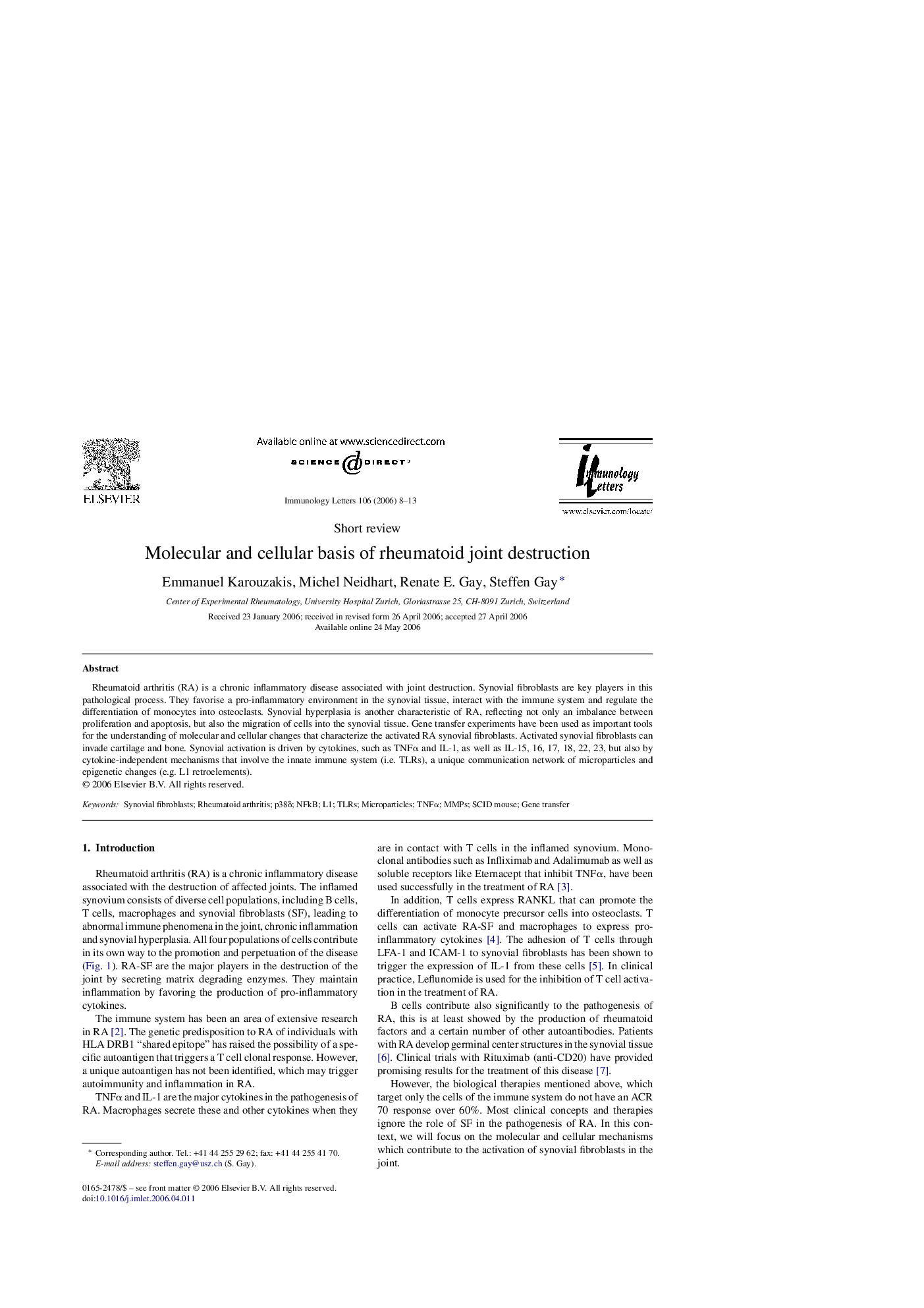| Article ID | Journal | Published Year | Pages | File Type |
|---|---|---|---|---|
| 3356479 | Immunology Letters | 2006 | 6 Pages |
Rheumatoid arthritis (RA) is a chronic inflammatory disease associated with joint destruction. Synovial fibroblasts are key players in this pathological process. They favorise a pro-inflammatory environment in the synovial tissue, interact with the immune system and regulate the differentiation of monocytes into osteoclasts. Synovial hyperplasia is another characteristic of RA, reflecting not only an imbalance between proliferation and apoptosis, but also the migration of cells into the synovial tissue. Gene transfer experiments have been used as important tools for the understanding of molecular and cellular changes that characterize the activated RA synovial fibroblasts. Activated synovial fibroblasts can invade cartilage and bone. Synovial activation is driven by cytokines, such as TNFα and IL-1, as well as IL-15, 16, 17, 18, 22, 23, but also by cytokine-independent mechanisms that involve the innate immune system (i.e. TLRs), a unique communication network of microparticles and epigenetic changes (e.g. L1 retroelements).
